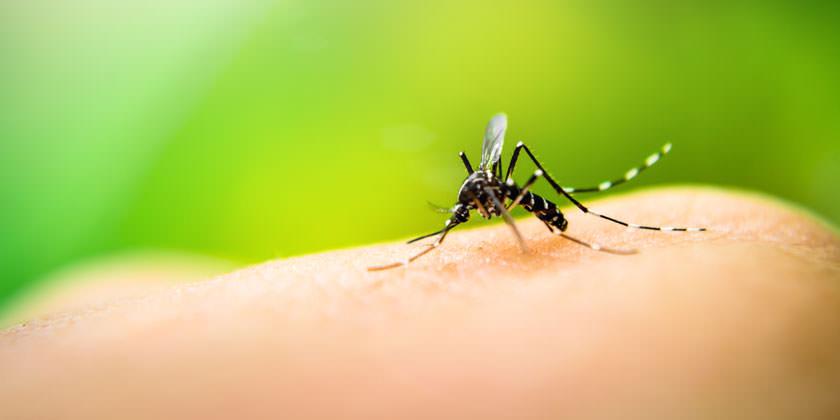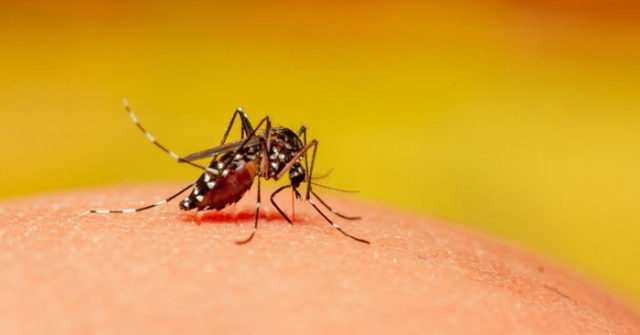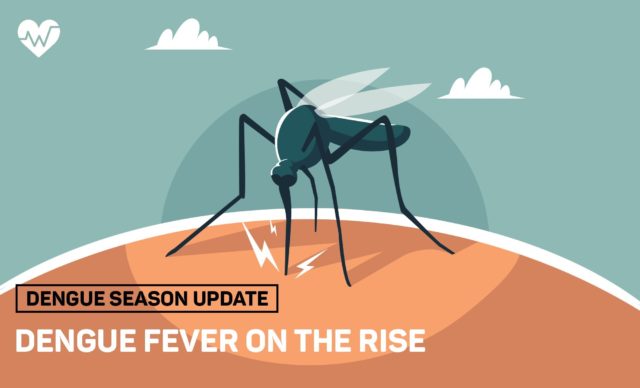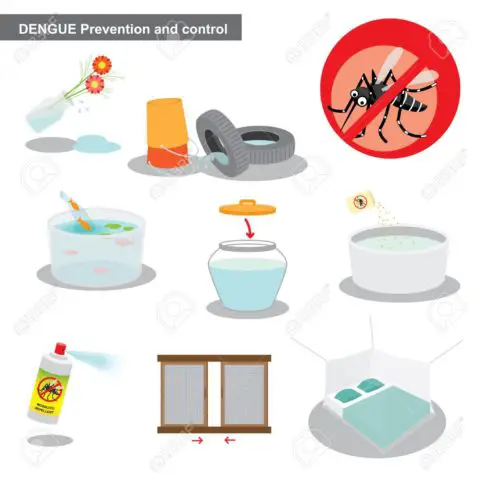Dengue is a mosquito-borne disease that occurs in tropical and subtropical areas of the world. Mild dengue causes high fever, rash, muscle, and joint pain. A severe form of dengue, also called “hemorrhagic dengue fever,” can cause severe bleeding, a sudden drop in blood pressure (shock) and death. Millions of cases of dengue infection occur annually worldwide.

Dengue is more common in Southeast Asia and the islands of the Western Pacific, but the disease has increased rapidly in Latin America and the Caribbean. Researchers are working on dengue vaccines. At the moment, the best prevention is to reduce the mosquito habitat in areas where dengue is frequent.
Symptoms.
Many people, especially children, and adolescents may have signs or symptoms during a mild case of dengue. When symptoms occur, they usually begin four to seven days after the bite of an infected mosquito. Dengue causes a high fever of 104 ° F (40 ° C), and at least two of the following symptoms: headaches, pain in the muscles, bones, and joints, nausea and vomiting, inflamed eye glands, intense body rash.
Most people recover in about a week, but in some cases, the symptoms get worse and can be life-threatening called dengue shock syndrome due to the severe form of dengue called “dengue hemorrhagic fever”. Blood vessels are often damaged and internal hemorrhage arises along with a decrease in the amount of clot-forming cells (platelets) in the bloodstream. The symptoms of this severe form of dengue which represents a life-threatening emergency include:
Severe abdominal pain
Constant vomiting
Bleeding gums or nose
Blood in the urine, or feces
Bleeding under the skin, this may look like bruises
Trouble breathing or rapid breathing
Cold or moist skin (shock)
Fatigue Irritability or restlessness
If any of these symptoms arise immediately go to the nearest emergency center, especially if you have recently visited a region with known cases of dengue.
Causes.

Dengue is caused by any of the four different types of dengue virus transmitted by mosquitoes that proliferate inside and around human homes called the Aedes aegypti or “white legged” mosquito. When a mosquito bites a person infected with the dengue virus, the virus enters the insect’s organism, then when the infected mosquito bites another person, the virus enters that person’s bloodstream.
When you are cured after a dengue outbreak, you become immune to that specific type of virus that infected you but not to the other three remaining types of the dengue virus. The risk of getting severe dengue, also known as “dengue hemorrhagic fever,” actually increases if you get infected a second, third or fourth time.
Risk factors.

Factors that increase the risk of getting dengue include:
Living in or traveling to tropical regions. Being in tropical and subtropical regions increases the risk of exposure to the virus that causes dengue. The high-risk regions are, in particular, Southeast Asia, the islands of the Western Pacific, Latin America and the Caribbean.
Previous infection with a dengue virus: A Previous infection with a dengue virus increases the risk of serious symptoms if you become infected again, which can cause complications that can damage the lungs, liver or heart. Blood pressure can drop to dangerous levels, cause shock and, in some cases, death.
Prevention.

The dengue vaccine, Dengvaxia, is approved for use in people 9 to 45 years of age living in areas with a high incidence of dengue. The vaccine is given in three doses over 12 months. The Dengvaxia vaccine may prevent dengue infections in around 50% of cases.
The vaccine is approved only for older children because younger children who receive it seem to have a higher risk of severe dengue that could lead to hospitalization two years after receiving the vaccine.
The World Health Organization emphasizes that the vaccine is not an effective tool by itself to reduce dengue in areas where the disease is common. Controlling mosquito populations by eliminating its breeding grounds and reducing human exposure remains the most important prevention measure.

